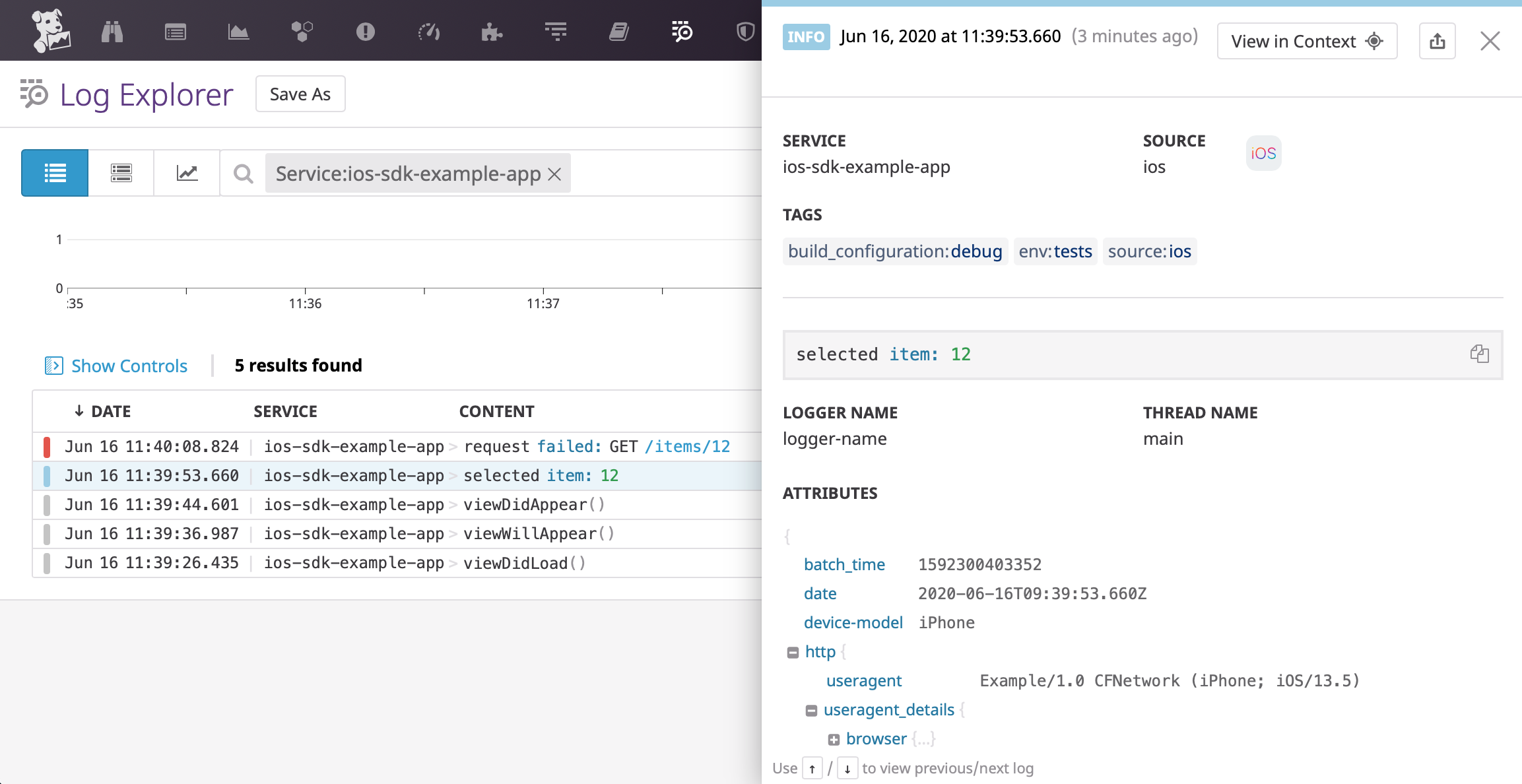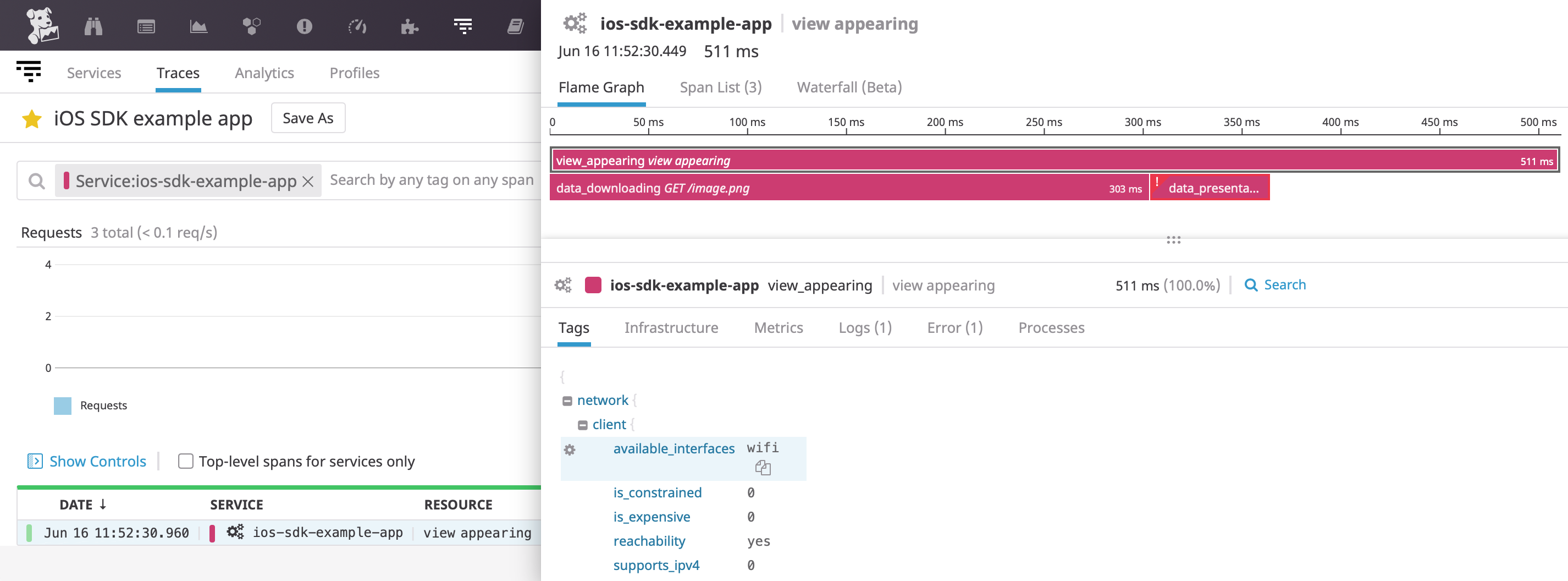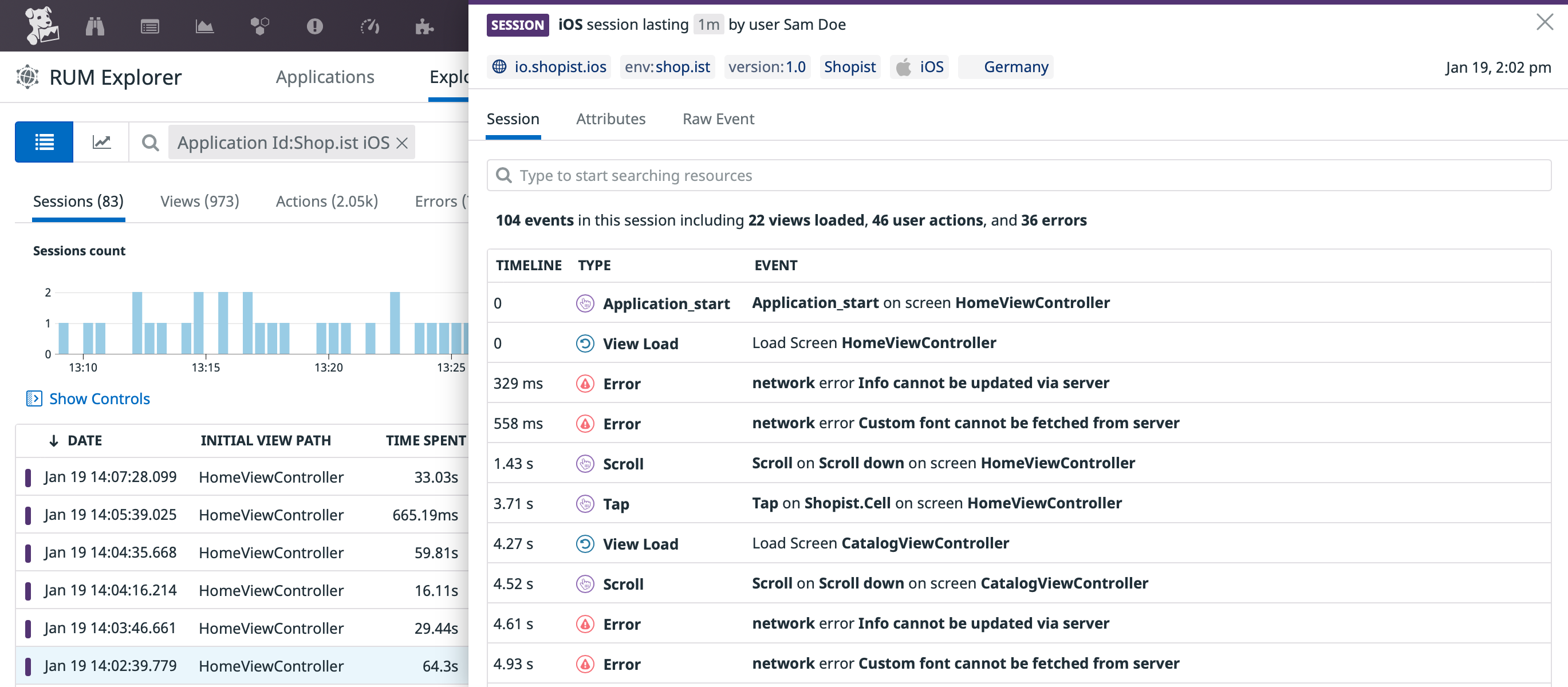Swiftpack.co is a collection of thousands of indexed Swift packages. Search packages.
See all packages published by DataDog.
DataDog/dd-sdk-ios dogfood
Datadog SDK for iOS - Swift and Objective-C.
⭐️ 178
🕓 1 year ago
iOS
macOS
tvOS
.package(url: "https://github.com/DataDog/dd-sdk-ios.git", from: "dogfood")
Datadog SDK for iOS and tvOS
Swift and Objective-C libraries to interact with Datadog on iOS and tvOS.
Getting Started
Log Collection
See the dedicated Datadog iOS Log Collection documentation to learn how to send logs from your iOS application to Datadog.

Trace Collection
See Datadog iOS Trace Collection documentation to try it out.

RUM Events Collection
See Datadog iOS RUM Collection documentation to try it out.

Integrations
Alamofire
If you use Alamofire, review the Datadog Alamofire Extension library to learn how to automatically instrument requests with the Datadog iOS SDK.
Contributing
Pull requests are welcome. First, open an issue to discuss what you would like to change. For more information, read the Contributing Guide.
License
GitHub
| link |
| Stars: 178 |
| Last commit: 1 minute ago |
Advertisement: IndiePitcher.com - Cold Email Software for Startups
Dependencies
Release Notes
2.10.0
3 days ago
Features
- Fatal App Hangs are now tracked in RUM. See #1763
- Distributed tracing now uses 128-bit trace id. See #1721
Improvements
- Optimise Session Replay by not sending recorded images from succeeding app sessions. See #1747
Other Changes
- Solve false-positive Privacy Manifest warnings on Required Reason API usage. See #1774, solves #1756 and #1749
Swiftpack is being maintained by Petr Pavlik | @ptrpavlik | @swiftpackco | API | Analytics